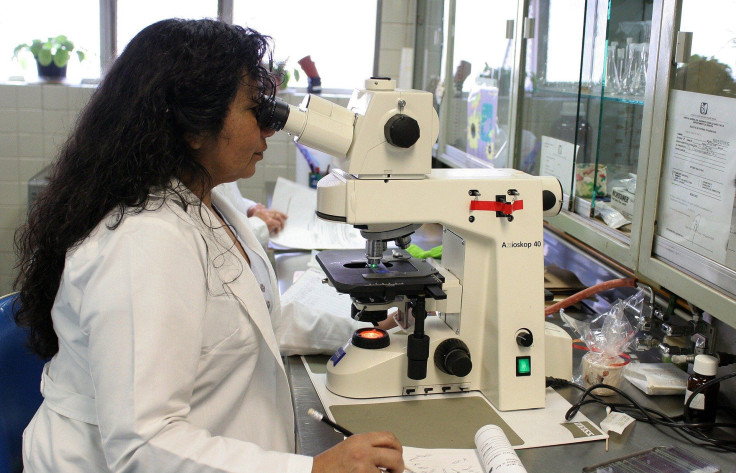Parents’ ‘For Fun’ DNA Test Reveals Son Was Fathered By Random Guy After IVF Error
KEY POINTS
- A Utah couple discovered that their second son had a different biological father after their family took a DNA test "for fun"
- They were able to contact the biological father, and the two families have since developed a friendship
- The two families were planning to file two separate lawsuits against the University of Utah over the alleged IVF mix-up
A DNA test led to a shocking discovery for one Utah family who learned their son is not related to the father after an IVF mix-up over a decade ago.
Donna and Vanner Johnson, aged 45 and 46, respectively, ordered DNA kits for themselves and their two children "just for fun" in July 2019, Today reported. When the couple later received the results of the 23andMe samples on their wedding anniversary, they stated that Donna was the mother of their second son, Tim, but listed under "father" was the word "unknown."
"I looked at my son's results and it said that he had a half-brother through me, and it all came crashing down. I knew something was wrong," Donna told Today Parents.
Donna and Vanner had approached the University of Utah's Center for Reproductive Medicine in 2007 to conceive another child via IVF after the latter's vas deferens was damaged from three hernia surgeries following the birth of their firstborn.
Their second son's DNA test results, however, led to the realization that something wrong had happened during the IVF process — another man's sperm was used to fertilize Donna's egg.
Vanner later informed Tim that the child had a different biological father while the two were out for ice cream. "He said that whatever happens, I'm still his dad. And I said, 'Yeah, I am. I will always be your dad,'" Vanner recalled.
Additionally, Vanner and Donna informed their firstborn of the situation, who replied, "It doesn't matter, he's (Tim) still my brother."
The couple purchased another DNA test kit via Ancestry.com after Tim decided to search for his biological father, and they were able to find the family of Devin and Kelly McNeil with the help of the new test's results.
Vanner — believing he had found Tim's biological father — decided to call the McNeils, but his first two calls were ignored because Devin thought they were spam, a report by ABC 4 Utah said. Devin then answered the third call, and Vanner was able to ask questions regarding his wife's IVF at the University of Utah.
After Vanner explained his story to the McNeils, Devin said his "mind was blown" and that he was left "speechless" because of the situation.
The McNeils later agreed to take a DNA test paid for by the Johnsons, and the results showed Devin's family members showing up on Tim's line as well, which confirmed both families' suspicion that Devin was Tim's biological father.
Devin and Kelly later told their children, who were aged 6, 8 and 13 at the time, that they had a biological half-brother. The couple also had to explain the IVF process to them.
Both the Johnson and McNeil families have met twice since the revelation and plan to continue being friends, with the McNeils saying they will be involved in Tim's life as much as he wants.
"We just decided that we need to make this positive, and make it about what Tim wants, because it's really his story. He's not our kid; he's an extension of our family. Vanner is still his dad, and Tim is loved and taken care of and has a good home and great parents. We don't want to take that away," Kelly said.
Both families said they wanted to see more rules and regulations put in place to ensure this kind of situation does not happen to another family. The two families were preparing to file two separate lawsuits against the University of Utah's Center for Reproductive Medicine over the mix-up, but none have been filed so far.
The University of Utah said in a statement that they cannot comment on patients’ cases without consent. "The safety and care of our patients is our primary goal. If patients come to us with questions or concerns about their care, we evaluate our procedures and, if necessary, make changes to prevent harm from happening to other patients. Our providers and staff strive to provide excellent care and we constantly work to make improvements," a spokesperson for the university said.






















